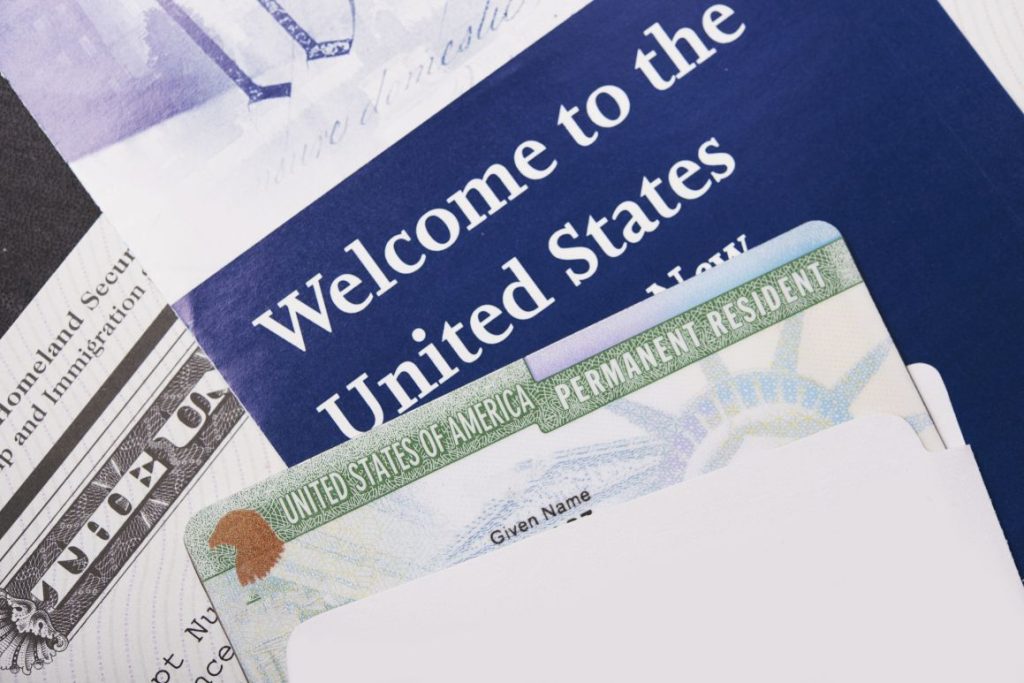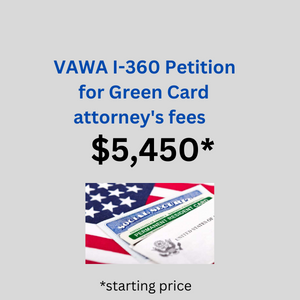Who Qualifies for VAWA? Overview
What are the Requirements for a Spousal VAWA Green Card?
Only a spouse, unmarried child, or parent who experiences abuse from a U.S. citizen or lawful permanent resident (green card holder) qualifies for VAWA. A parent abused by a lawful permanent resident does not qualify.
Spouse Eligibility for VAWA
An “abused spouse” is someone who marries a U.S. citizen or lawful permanent resident and faces “battering” or “extreme cruelty.” Abuse can include physical harm, verbal abuse, or controlling behavior.
To qualify for VAWA, a spouse must prove the following:
-
Qualifying Relationship: The spouse must be married to a U.S. citizen or green card holder. Prove this with a birth certificate, passport, naturalization certificate, or green card. In some cases, common-law marriages or marriages affected by bigamy may qualify.
-
Evidence of Abuse: Submit a statement describing the abuse, along with supporting documents like police reports, court records, medical reports, psychological evaluations, and affidavits from witnesses.
-
Bona Fide Marriage: The marriage must be real, even if it’s ending. Support this with wedding photos, joint bank accounts, or life insurance policies.
-
Joint Residence: You must have lived with the abusive spouse. Provide proof with lease agreements or home deeds.
-
Good Moral Character: You must show good moral character, meaning you are no worse than the average person in your community. A clean FBI background check serves as proof. If you have a criminal record, consult an immigration attorney, as certain offenses may not automatically disqualify you.
Parent or Child VAWA Green Card: Eligibility
Child Eligibility for VAWA
“Who qualifies for VAWA?” also includes certain children. A “child” is an unmarried person, under 21 years old who suffers abuse at the hands of their U.S. citizen or permanent resident parent. This category includes step-children. Children up to 25 years old are eligible to file if he or she can prove that the abuse was the main reason for delaying the filing. The child must also have resided with the abusive parent/step-parent and be a person of good moral character.
A child less that 14 years old is presumed to be a person of good moral character. The child may file an independent petition. In this case, the child must have resided with the abuser. The child may also be a derivative on the abused spouse’s petition, if the abuser abused his or her mother or father. In that case the child does not have to have lived with the abuser.
Parent Eligibility for VAWA
A VAWA parent must have resided with the abusive daughter or son and must prove the parent/child relationship. Strong evidence includes money order receipts or cancelled checks showing financial support, insurance policies listing the child as dependent, school records, correspondence between the child and the parent and notarized affidavits of friends or neighbors with knowledge of the relationship. The parent must also be a person of good moral character and present evidence of the abuse.
Adjustment of Status for a VAWA Applicant
If you meet the eligibility requirements for VAWA you may be able to obtain permanent residence. An adjustment of status application may be filed jointly with the I-360 petition or may be filed after the I-36o petition is approved.
If you had filed an I-485 Adjustment of Status Application with an I-130 petition you may be able to save it without having to pay a second filing fee. An experienced immigration attorney will best be able to advise you on the procedures to accomplish this feat.
Adjustment of Status Requirements
To apply for adjustment of status, you must meet the following requirements:
-
Photographs: Submit two recent identical color passport-style photographs.
-
Entry: You must be present in the U.S. to file. VAWA allows adjustment even if you entered without inspection.
-
Proof of Identity: Provide a photocopy of a government-issued identity document with your photo, such as a passport, driver’s license, or national ID. Expired documents are acceptable.
-
Birth Certificate: Submit a long-form birth certificate listing at least one parent. If unavailable, provide proof of its unavailability and alternative evidence, like school or medical records, or personal affidavits.
-
Admissibility: You must be admissible. There should be no issues in your criminal or medical history that would prevent green card approval. Some offenses or medical conditions may be forgiven through a waiver.
-
Medical Examination: Undergo a medical exam with a USCIS-approved doctor.
-
Criminal History: Submit court records and police reports regarding your criminal history.
How An Immigration Attorney Can Assist?
My name is Cheryl Fletcher and I have been practicing immigration law since 2015. I have helped hundreds of VAWA applicants successfully obtain permanent residence. After reading this article you should have a much clearer understanding of “who qualifies for VAWA.”
If you have lost hope or are confused by the VAWA process, please fee free to contact me using the booking button below. I will take the time to explain you rights and advise you on the best strategy to achieve you goals.

Watch Attorney Fletcher explain the 8 eligibility requirements for a successful VAWA petition. WATCH NOW.




